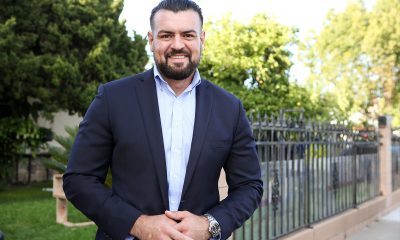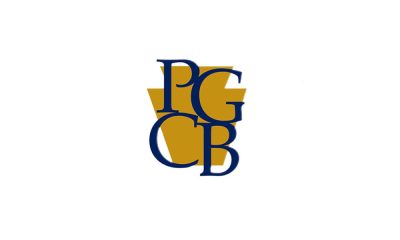Gambling in the USA
The State of Online Gambling Fraud: An Interview with Declan Raines of TransUnion

First of all, could you give us a ‘status report’ about the current online gambling environment? How concerned should players be about fraud? Is it a widespread threat?
Online gambling has experienced enormous growth thanks to digital platform improvements, stay-at-home orders, and loosening regulations. The United States in particular reached record highs with more Americans gambling in 2021 than ever before. Mobile sports betting was one of the main drivers as many states turned to online gaming to capture tax revenue and bolster budgets. New York is a clear example; mobile betting went live at the beginning of the year and immediately set records with more than $1.6B wagered by residents in January. Large states like California, Massachusetts and Florida are considering similar legislation and it’s a matter of time before they join the mobile betting market too.
All this growth, attention, and revenue has been great for the industry, but naturally it’s also attracted the attention of criminals. The challenge with measuring fraud is that you have to catch it to count it, but even with that limitation, TransUnion’s 2022 Global Digital Fraud Trends Report saw a 19.2% increase in suspected digital fraud targeting the gambling industry.
We expect attention from fraudsters to keep pace with the growth of online gambling, and it should be a major concern for both players and gaming companies. That’s supported by what we’ve seen in Europe, where online gambling has been legal for some time now and fraud has been a continuous issue. The silver lining is that the U.S. can benefit from Europe’s example and adopt the most effective compliance, risk, and regulation best practices for consumers and the industry.
What are the reasons behind the rising number of fraud crimes committed?
Fraud will always follow large amounts of money, but much of the recent uptick in fraud can be attributed to bonus abuse. The competition from operators for all these new mobile customers is fierce. To stand out, companies are offering thousands of dollars in deposit bonuses when players sign up. These lucrative bonus offers, and incentives have become table stakes in attracting players to online operators.
In the rush to acquire new players operators have opened themselves up to fraud. They are susceptible to things like arbitrage betting where players make opposite sides of the same bet on different platforms but capture the deposit bonuses from each company. There are also bad actors using synthetic identities to create multiple fake accounts to try and clean funds or capture bonuses.
Bonus abuse will continue to be widespread when there’s such an emphasis on offering enormous bonuses to try and draw new players onto platforms. Ultimately bonus abuse in the US is somewhat of a commercial decision for operators as they strive to balance player acquisition with bonus abuse. Even in Europe, where there are more mature markets and smaller deposit bonuses, this type of fraud continues. It’s up to operators to take steps to protect themselves and customers.
What type of information is at risk? How can they be used against players?
The primary concern of players should be account takeover fraud. Fraudsters are actively looking to gain access to account credentials and are using increasingly complex techniques to accomplish that. Everything from phishing scams to SIM swapping to capture one-time passcodes have been used to gain access to funds in betting accounts. Once they gain access, fraudsters will directly withdraw the funds to one of their own accounts or sell that information on the dark web to other bad actors who will do the same.
Players can protect themselves with robust info security practices. When it comes to online gambling, using a password manager is still effective, but other techniques like VPNs aren’t available to consumers since regulation requires geolocation. Ultimately, good cyber hygiene and being vigilant in monitoring your account will be enough to repel most fraud attempts.
What can game providers do against these attacks? Is it possible to protect players without impairing player experience?
There’s a lot that online operators can do to vet and identify potential fraudsters – there are near-countless customer authentication methods available – but the industry as a whole has largely prioritized the player experience due to the risk of player abandonment. Player abandonment is estimated to be near 70% in the online gambling space right now and it’s easy to imagine why. Most people sign up for a mobile betting account with a specific bet in mind, something that’s especially true for sports wagers. A prospective player sits down on the couch to watch the game, decides they would like to make a wager, but only has a limited amount of time before the game starts. If that person has authentication issues or is impeded in any way during the onboarding process, they’re very likely to abandon the attempt or find a more lenient operator.
I would surmise that operators in the US are more tolerant of having fewer authentication methods in place because player acquisition is the priority right now. That will inevitably change as the industry matures, so operators will have to find a balance between a smooth player experience and better fraud prevention practices.
How does TransUnion ensure safety? What makes the company stand out?
Many online operators believe they must choose between the player experience and fraud prevention – but our team at TransUnion knows that’s not the case. Our experiences in Europe show that you can offer a frictionless player journey and a robust prevention strategy that does give you the best of both worlds.
The key to that is intelligence. Our approach measures confidence levels across three different data categories for each player: who they are, where they are, and what devices they are using. You can quickly identify fraudulent activity from any misalignments in those data elements. For example, if an address doesn’t match with the geolocation or an identity doesn’t match to a device, our team can flag for operators that this account needs an extra layer of scrutiny or friction before allowing access.
This is possible through the industry consortiums we support and work with to share information on potential fraudsters. If a device is associated with healthcare, credit card, or synthetic identity fraud, our gambling operator partners know and can act accordingly if the same information or devices are used on their platforms.
Our teams cast the widest net possible to ensure that online operators don’t have to ask for additional information and can avoid increasing friction in the onboarding process and improve the chances of legitimate players going through the experience seamlessly.
My belief is that with a fully accurate summation of fraud in the gaming market in the US would dwarf the fraud that happens Europe. Operators haven’t been able to put procedures in place to adequately protect themselves during the race to bring on new players. This is temporary; operators will eventually incorporate more robust fraud prevention into the onboarding process as the emphasis on player acquisition is reduced with market maturity. But knowing when to do it, and understanding how to preserve your player journey and experiences, will allow operators to apply a “friction-right” approach where they can have the best of both worlds.
Gambling in the USA
Major Casino Operators Ready to Invest if Georgia Lifts Casino Ban

As discussions about legalizing gambling in Georgia gain momentum, major casino operators like Wynn Resorts and Boyd Gaming are poised to lead the charge if the state changes its restrictive laws.
During a recent Georgia House study committee meeting, Christopher Gordon, president of Wynn Resorts’ development arm, expressed keen interest in building a multibillion-dollar casino should legal barriers be removed. Similarly, Boyd Gaming’s government affairs vice president Ryan Soultz highlighted Georgia’s market attractiveness.
Wynn’s model would be similar to its $2.6 billion Encore Boston Harbor, suggesting that a new Georgia casino could employ up to 4000 workers and contribute substantial gaming tax revenue.
Although specific locations have not been chosen, both companies have indicated they would need constitutional changes to move forward. Their willingness to invest heavily in the Peach State demonstrates a strong belief in the untapped potential of the state’s gambling market.
Such developments offer a compelling argument for lawmakers to consider gambling expansion, marking a shift toward economic incentives as a primary motivator for legislative change.
Should Georgia proceed with legalizing casino gambling, the legislative language will be crucial in shaping the industry’s landscape. Key proposals may include requiring casino companies to invest at least $1.2 billion per resort and generate a minimum number of jobs, often set at around 10,000 per license. This ensures that any developments bring tangible benefits to the local economy.
Additional legislative demands include rigorous background checks for key personnel, proven industry experience, and adherence to strict technical and financial standards. Only companies with substantial capital and robust infrastructure, like Wynn Resorts and Boyd Gaming, are likely to meet these stringent requirements.
Gambling in the USA
Plaza Hotel & Casino to welcome the U.S. National Champions Summerlin South All Stars to be TNT Ignitors for Welcome to the Weekend Friday Fireworks, next Friday, Sept. 5

The Plaza Hotel & Casino will welcome the U.S. National champions, the Summerlin South All Star team to be the special guest TNT Ignitors of the property’s Welcome to the Weekend Friday Fireworks show, next Friday, Sept. 5 at 9:15 p.m., taking place on the Plaza’s rooftop pool deck.
“Getting to ignite the Plaza’s amazing fireworks show is a great honor for the team,” said Chris Mallory, president of Summerlin South. “And we thank the Plaza and Jonathan for the warm welcome and fun celebration planned for the team, including a pizza party for them and their families.”
“All of Las Vegas is proud of the accomplishments that the Summerlin South team made in the All Star postseason,” said Jonathan Jossel, CEO of the Plaza Hotel & Casino. “We look forward to hosting the team and their families, and we hope all of their fans come out to celebrate with them and enjoy the fireworks show.”
The summer fireworks shows are staged from the top of the Plaza’s South Tower every Friday at 9:15 p.m. from May through September.
The public can watch the Welcome to the Weekend Friday Fireworks Show for free at the rooftop pool, at Carousel Bar under the Plaza’s iconic dome, and from in front of the Plaza on Main Street, which will be closed to vehicular traffic during the show for viewing the fireworks from Carson Avenue to Ogden Avenue.
The Plaza’s fireworks will be dependent on weather conditions and are subject to change or cancellation. Updates will be available on the Plaza’s social media channels, including Facebook, Instagram and Twitter.
Gambling in the USA
New Hampshire Charitable Gaming Revenue Hits $24.8M in July

New Hampshire charitable gaming revenue has reached $24.8 million last month, up from the previous year’s figure of $14.5 million, boosted by the opening of new casinos.
The latest figures come from the New Hampshire Lottery and Gaming Commission, which shows that of the 15 casinos, only four saw losses, while four others were not in operation last July.
The Nash Casino, which opened in March, generated the highest revenue of all the casinos – $5.8 million.
The highest year-over-year increase was seen by the Revo Casino Lebanon, which opened in a new location in December, and saw revenue rise by 321% from $387,836 to over $1.6 million.
Other notable rises were seen from the Lakes Region Casino, which generated an increase of 24% year-over-year and The Brook, which saw a 17% rise from $4.7 million to $5.5 million.
The biggest declines came from The Lucky Moose Casino, where profits dropped by 79% from $666,454 to $139,748, and the Gate City Casino, which saw profits fall by 16% from $2.7 million to $2.3 million.
Historic horse racing revenue rose by 85% year-over-year, from $10.6 million to $19.7 million, while games of chance revenue increased by 53% from $3.3 million to $5.1 million.
-
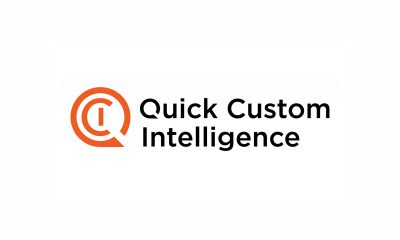
 Latest News4 days ago
Latest News4 days agoQuick Custom Intelligence Welcomes Industry Veteran Melissa Chiaurro as Vice President of Business Development
-

 Latest News4 days ago
Latest News4 days agoEGT Digital in a strategic partnership with Pepeta in Kenya
-

 Latest News4 days ago
Latest News4 days agoUruguay Introduces New 0.75% Tax on Casino and Gaming Bets
-
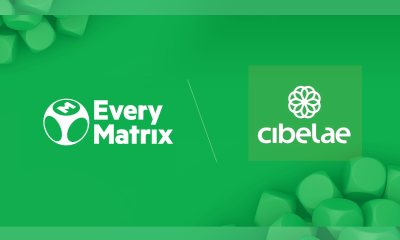
 Latest News4 days ago
Latest News4 days agoEveryMatrix signals LatAm expansion plans with CIBELAE membership
-
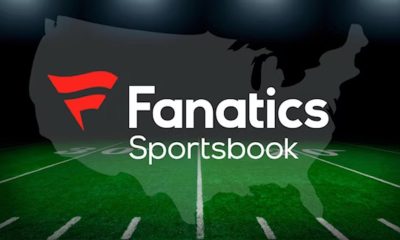
 Gambling in the USA5 days ago
Gambling in the USA5 days agoFanatics Betting and Gaming, Boyd Gaming Announce Missouri Partnership
-

 Latest News3 days ago
Latest News3 days agoCactus Founder Nickolas Ribeiro Defends Industry’s Continued Commitment to Responsible Gaming
-

 Latest News6 days ago
Latest News6 days agoELA Games at SBC Lisbon: New Games, Market Growth, and Awards Night
-

 Latest News3 days ago
Latest News3 days agoEGTs RK6C roulette with a first-ever installation at Volcano Casino in Montenegro








